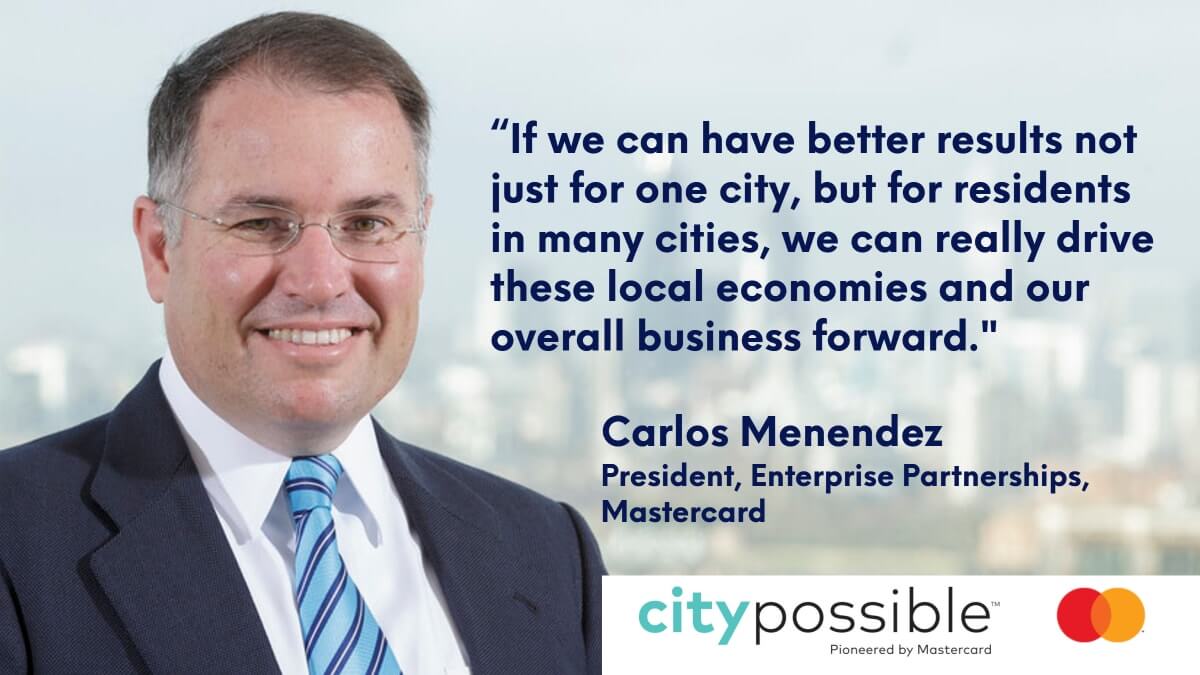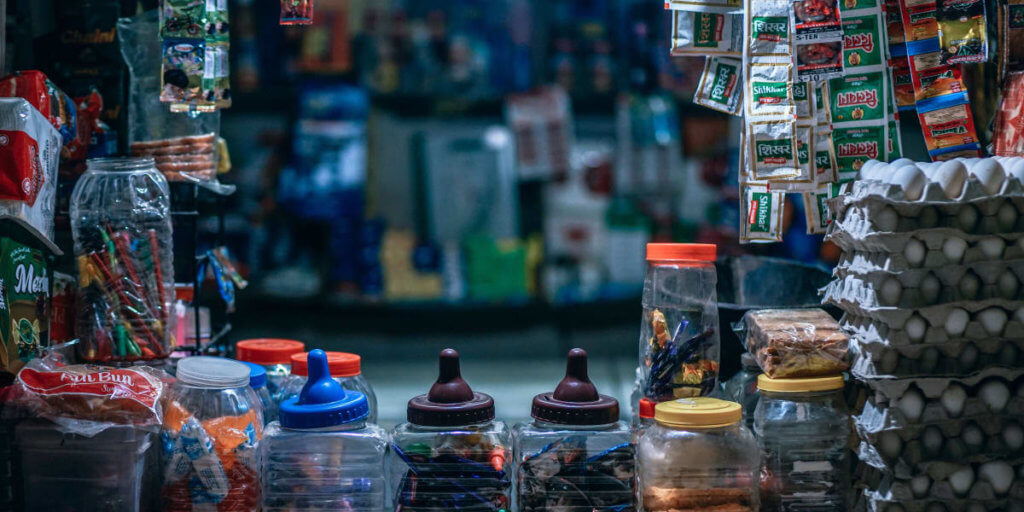
Carlos Menendez, President of the Enterprise Partnerships Group at Mastercard, sat down with Dr. David S. Ricketts, Harvard Innovation Fellow, for a fireside chat about innovative ways companies can find partners and make an impact globally. Carlos shared two example cases on the way Mastercard has approached innovative partnerships and their resulting impact.
@Mastercard discusses what #innovation looks like in #industry, and how it can be expanded to #smartcities. @CityPossible Click To Tweet
Helping Micro-Entrepreneurs in Kenya
The first example Menendez shared was a partnership with Unilever on improving distribution and helping micro-entrepreneurs in Kenya. To understand the totality of the problem, Mastercard looked at the entire ecosystem to find out what was happening and what could be improved.
What they found is that most small business owners in Kenya who purchase items from Unilever (soap, water, diapers, etc.) use cash for those transactions. When store owners were asked to describe their process of ordering, they explained that the supply truck comes once a week on a certain day, so they estimate how much cash they will have and order accordingly.
However, sometimes they may have ordered two cases of product (for example) and when the truck visits, they find they only have enough cash for one and a half cases. When that happens, the truck driver will break a case to give them the half they need.
Product breakage and inefficient distribution are problems for many consumer goods companies. Relying on cash and not getting the right amount of product that could be sold are problems for store owners.
Store owners know that having a line of credit could help them avoid cash issues, but they also have the problem that, because they have been dealing in cash, they have not been able to establish a credit history in order to be able to borrow from formal lenders at reasonable interest rates.
After understanding the entire ecosystem, Mastercard was able to pose a solution. Although it seemed that store owners did not have the data to prove their credit-worthiness, that data was there all along. The data existed in Unilever, in all of the past transactions that could establish a store owner’s ability to pay for their inventory over time.
As a result, store owners can demonstrate their eligibility for micro-loans, and increase orders from what they could afford to pay with cash to what they can actually sell.
Improving Hepatitis C Treatment in Pakistan
A second example Menendez shared is one in which Mastercard partnered with Gilead Sciences and the World Hepatitis Alliance to help improve the distribution of hepatitis C drugs in Pakistan. Once again, they sought to understand the entire ecosystem to understand the problems and find customized solutions.
In Pakistan, an estimated 8 million people have hepatitis C. This liver disease is common in developing nations, yet it is completely curable. The issue is that patients have to commit to six months of treatments and doctor’s visits in order to be cured, and some fail to follow through.
The distribution challenge is that, with hepatitis C, there is a timely nature for treatment to be successful. Non-profits may want to help people with treatment; however, it is hard to track if the patients are receiving their medication on time and on the right schedule. Without knowing if people are actually getting the drugs in the right timeline to cure their disease, the efforts to help may all be for naught.
After understanding the problems at the various levels, Mastercard was able to offer a solution that involves plastic cards. These cards are used to track all of the treatments and doctor’s visits a patient will need to be cured. An added-time stamp feature provides data about whether the patient is making the appointments, which helps improve the distribution of this life-saving drug.
Innovative Partnerships with Cities
The stories Menendez shared demonstrate the approach of understanding the entire ecosystem, teasing out the problems for each party involved, and coming up with creative solutions through innovative partnerships. When it comes to selecting which partnerships they will form, Menendez, says they look for established companies and prioritize building relationships and trust before setting out to work on the problem.
[tweet_dis_img]
As mentioned before, Mastercard is also partnering with cities across the globe to find ways where innovation can solve city problems. Why innovative partnerships with cities? It’s because that is where business happens and where people engage in commercial activities.
However, it goes a bit deeper than that, too.
“The thing we’ve found about cities is that a lot of the challenges are the same,” says Menendez. “If we can have better results not just for one city, but for residents in many cities, we can really drive these local economies and our overall business forward.”
These insights were shared at the Smart Cities Innovation Accelerator at Harvard.


